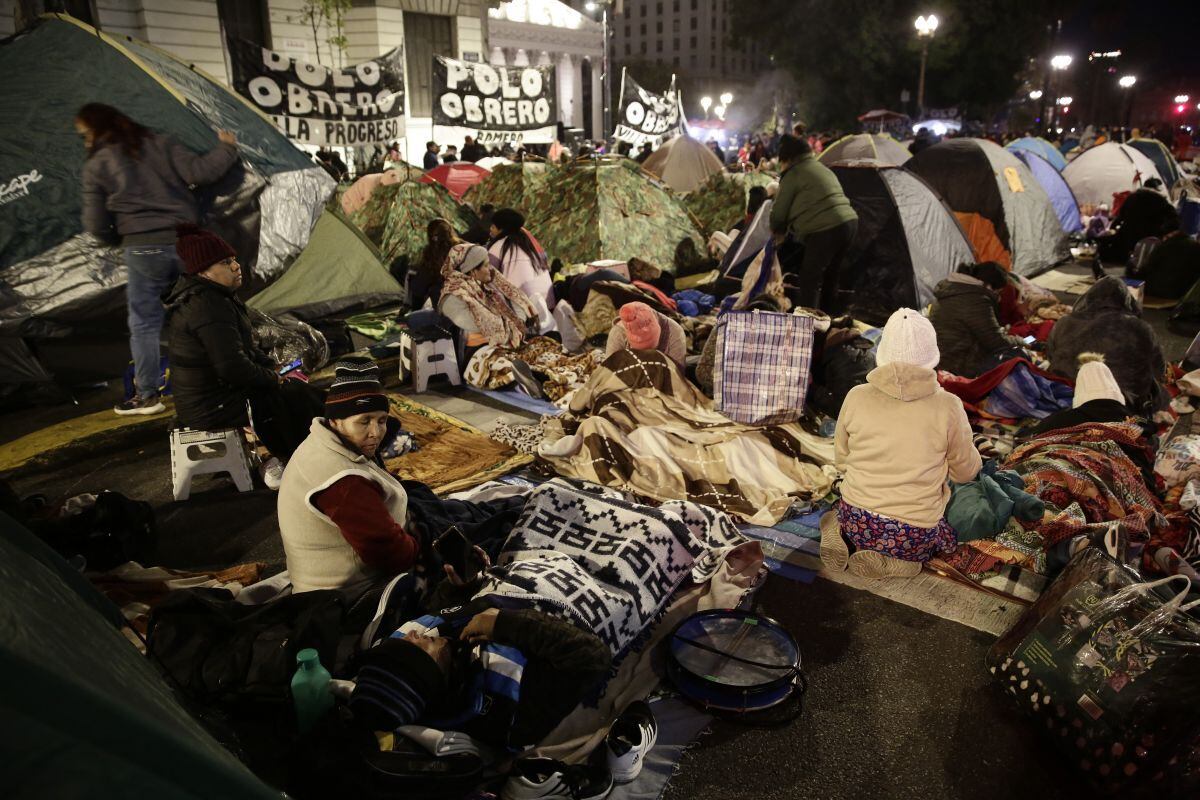
The tension generated by the inflationary and exchange rate cocktail that Argentina It is increasing with six months left before the presidential elections are held and without either the government or the political opposition sectors giving clear signals on how they intend to resolve the deep macroeconomic imbalances in the South American country.
The week that ends this Saturday was marked by renewed nervousness in the foreign exchange market, where the parallel prices of the US dollar climbed 10.5% in the informal market and 12.5% in the stock market, closing on Friday at record prices that almost double the value of the currency in the restricted official markets to access dollars.
The new jump occurred after the official inflation data for March was released, with an acceleration to 7.7% monthly and 104.3% year-on-year, fueling devaluation pressures on the Argentine peso and worsening the outlook for the Argentine economy.
There were also bad numbers in terms of the fiscal and commercial deficit and a foreign exchange income from agricultural exports that was much lower than expected, due to the impact of the severe drought suffered by Argentina.
POLITICAL NOISE
But political factors also added fuel to the uncertainty of investors, whose tendency to demand dollars for coverage is common in electoral years in Argentina, but which this week was exacerbated by a series of rumors and comments that increased the noise. political.
These rumors predicted an imminent and strong devaluation of the official exchange rate and even an eventual resignation of the Minister of Economy, Sergio Massa, who came out to deny those versions that circulated in the investment field.
According to the consulting firm Ecolatina in a report, “During the week, economic-political uncertainty increased”, with a “level of mistrust” that limits the ability of monetary policy “to moderate an inflationary dynamic that presents high inertia”.
In parallel, the main opposition candidates with a view to the presidential elections in October paraded in business meetings exposing what they plan to do in economic matters if they reach the Casa Rosada.
But his expositions left more doubts than certainties: from the radical dollarization proposed by libertarians to the exchange rate unification promised by the center and right-wing aspirants, no one ends up clarifying how, in what terms and with what desired effects -and unwanted collaterals – will carry out its plans to resolve the deep fiscal, monetary and exchange imbalances in the country.
DETERIORATION OF EXPECTATIONS
On the side of the Government, unable to respond to the demand for dollars given the scarce reserves of the Central Bank, the reaction to the renewed exchange tensions was to add restrictions on access to dollars, adjusting the “stocks” on the payments of services and interests abroad, and raise interest rates for fixed-term bank deposits in pesos.
And politically, in the midst of the financial turmoil, Antonio Aracre resigned last Tuesday, head of advisers to the Argentine president, Alberto Fernández, and who, according to local media outlets, promoted a devaluation plan that Massa opposed, while that this Friday the head of state announced that he was giving up his idea of competing for re-election in this year’s elections, an electoral process that will clearly be marked by the economic path.
In this framework, economic expectations tend to deteriorate.
According to the latest forecasts by private economists that the Central Bank consults monthly for its expectations report, inflation will grow 110% this year and GDP will contract 2.7%.
“The free dollar for now rises along with inflation. We still believe that we are far from a classic hyperinflation, but if corrective measures are not taken, there is a risk of flirting with that scenario”, warned the consultancy LCG in a report.
Source: EFE
Source: Gestion
Ricardo is a renowned author and journalist, known for his exceptional writing on top-news stories. He currently works as a writer at the 247 News Agency, where he is known for his ability to deliver breaking news and insightful analysis on the most pressing issues of the day.












